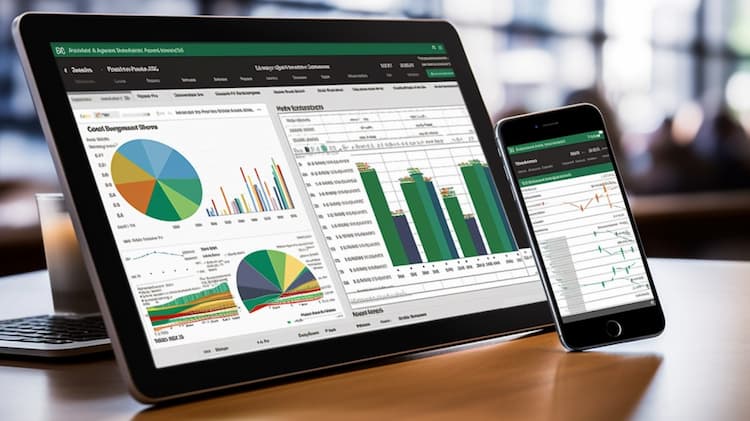AFSM ISSUER
The Exchange Traded Concepts Trust serves as the issuer of the AFSM, an exchange-traded fund designed to focus on U.S.-listed equity securities issued by small capitalization companies. Emphasizing an active management approach, the fund invests at least 80% of its net assets in such securities, with small capitalization companies defined as those within a market capitalization range of $250 million to $15.19 billion as of November 30, 2023. Employing a multi-factor quantitative methodology, the fund strategically considers factors such as value, momentum, quality, and low volatility to construct its portfolio. This methodology allows for dynamic adjustments in response to market conditions or new research findings. Additionally, the fund implements active risk management techniques to maintain exposure to desired factors while mitigating risks associated with specific industries/sectors and individual stocks.
AFSM DIVIDEND
As an actively managed exchange-traded fund (ETF), AFSM, issued by the Exchange Traded Concepts Trust, may distribute dividends to its investors. The dividends are typically generated from the income earned by the fund through its investments in U.S.-listed equity securities issued by small capitalization companies. These dividends are then distributed to shareholders periodically, according to the fund's dividend distribution policy. The frequency and amount of dividends can vary based on various factors, including the performance of the underlying securities held by the fund and market conditions. Investors in AFSM can expect to receive dividends as a potential source of income from their investment in the fund.
AFSM TRACKING
Tracking an actively managed exchange-traded fund (ETF) like AFSM, issued by the Exchange Traded Concepts Trust, involves monitoring its performance relative to its stated investment objectives and benchmarks. Given AFSM's focus on investing in U.S.-listed equity securities issued by small capitalization companies, tracking its performance entails evaluating its returns against relevant small-cap indices or benchmarks. Investors may assess AFSM's tracking by comparing its returns over various time periods to those of its benchmark and evaluating any deviations from its stated investment strategy. Since AFSM employs a multi-factor quantitative methodology and active risk management, tracking its performance also involves understanding how it adapts to changes in market conditions and adjusts its portfolio holdings accordingly. Investors may utilize performance metrics, such as tracking error and alpha, to gauge AFSM's effectiveness in achieving its investment objectives relative to its benchmark and peer group of funds.
AFSM CORRELATION
Assessing the correlation of AFSM, an actively managed exchange-traded fund (ETF) issued by the Exchange Traded Concepts Trust, involves examining its relationship with various market indices or other investment vehicles. Given AFSM's focus on investing in U.S.-listed equity securities issued by small capitalization companies, its correlation can be analyzed relative to small-cap indices such as the Russell 2000 or the S&P SmallCap 600. Additionally, investors may explore its correlation with broader market indices like the S&P 500 to understand how AFSM performs in different market environments. The correlation of AFSM can provide insights into its diversification benefits and how it behaves relative to different segments of the market. However, since AFSM employs an active management approach and utilizes a multi-factor quantitative methodology, its correlation may vary over time as it adjusts its portfolio holdings in response to changing market conditions and investment factors. Investors may monitor AFSM's correlation to assess its effectiveness in achieving its investment objectives and managing risk within their overall investment portfolios.
AFSM SECTOR
As an actively managed exchange-traded fund (ETF) issued by the Exchange Traded Concepts Trust, AFSM's sector exposure can vary based on its investment strategy and portfolio composition. Given its focus on investing in U.S.-listed equity securities issued by small capitalization companies, AFSM's sector allocation may reflect the industries and sectors where these companies operate. The ETF's sector exposure could encompass a broad range of sectors including technology, healthcare, consumer discretionary, industrials, and financials, among others. However, since AFSM employs a multi-factor quantitative methodology and active risk management, its sector allocation may also be influenced by factors such as valuation, momentum, quality, and volatility. Investors interested in AFSM's sector exposure may analyze its portfolio holdings and weightings to understand its sector diversification and potential concentration risks. Monitoring AFSM's sector allocation can provide insights into its investment strategy and how it positions itself within different sectors to achieve its investment objectives.
AFSM EXPOSURE
AFSM, an actively managed exchange-traded fund (ETF) issued by the Exchange Traded Concepts Trust, offers exposure primarily to U.S.-listed equity securities issued by small capitalization companies. The fund's investment objective revolves around capturing the performance of these smaller companies, which typically exhibit growth potential and may offer opportunities for capital appreciation. AFSM's exposure extends across various sectors and industries, reflecting the diverse nature of small-cap companies in the market. Additionally, AFSM employs a multi-factor quantitative methodology that considers factors such as value, momentum, quality, and low volatility in constructing its portfolio. This approach aims to enhance potential returns while managing risk. Investors in AFSM gain exposure to a dynamic mix of small-cap stocks, with the flexibility for the fund to adapt its investment strategy in response to changing market conditions and emerging opportunities.



